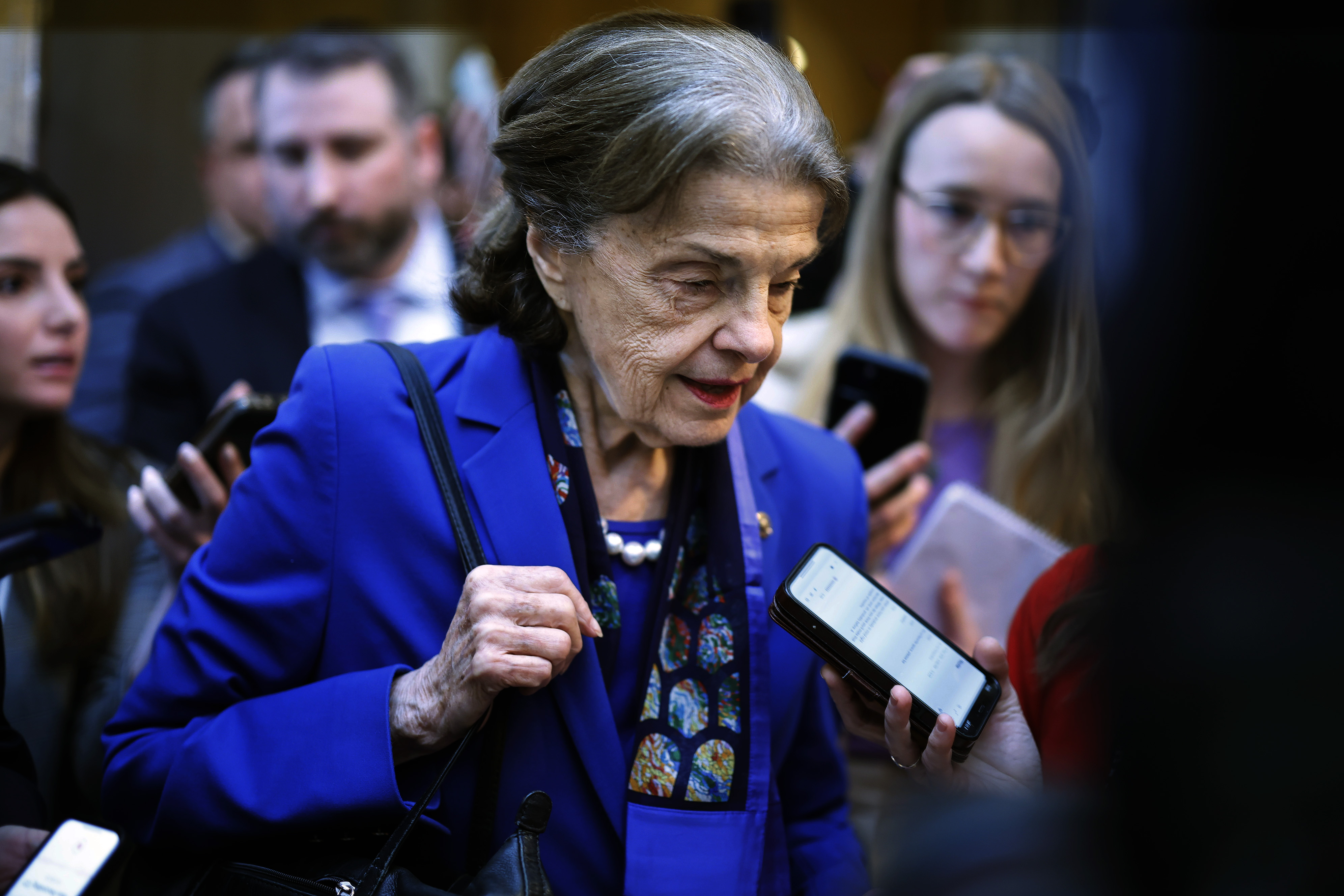Courts Tell FDA To Follow the Law on Chemical Abortion Drugs | Opinion
"Follow the science" has become a common refrain in American politics. But when the arbiters of "science" are politically motivated actors bent on advancing a partisan agenda, following their dictates can harm the public interest and undermine the rule of law.
This dynamic largely has been ignored in the ongoing debate around the chemical abortion drug mifepristone. Until now.
On April 7, Judge Matthew Kacsmaryk ruled in Alliance for Hippocratic Medicine v. U.S. Food and Drug Administration that the FDA broke the law when it approved mifepristone and, later, when it pulled back even the minimal safeguards on the drug. On April 13, the U.S. Court of Appeals for the Fifth Circuit allowed mifepristone to stay on the market for the time being but declined to pause reinstatement of safety precautions around its use. The Supreme Court is currently reviewing the Fifth Circuit's order.
Pro-abortion partisans predictably decried the district court's decision merely because Kacsmaryk is a Donald Trump-appointed textualist. Others, however, have cried foul on purported grounds that Kacsmaryk disagreed with the FDA about whether mifepristone is safe to use.
That criticism ignores the central premise of the court's decision. Namely, the FDA violated its own rules and governing statute when it approved mifepristone. Later, it unlawfully stripped away critical safeguards that the agency itself had imposed to facilitate a nationwide mail-order abortion economy—violating federal criminal law and undercutting state laws restricting abortion. And it did this in service of a naked political agenda to expand abortion.
As the district court opinion recounts, the story of mifepristone is one of staggering misfeasance by the FDA. Under pressure from the Clinton administration, the agency in 2000 engineered approval of mifepristone under then-existing FDA regulations by classifying healthy pregnancy as an "illness" and then asserting that mifepristone provided a "meaningful therapeutic benefit."

When it approved mifepristone, the FDA recognized the drug's unique dangers and imposed several restrictions, later called risk evaluation and mitigation strategies (REMS), on its use and distribution, including three required in-person office visits and tracking of all serious adverse events. In 2016, however, the FDA under the Obama administration eliminated mandatory reporting for all but fatal adverse events and pared back mandatory in-person visits from three to one. And in December 2021, the FDA under the Biden administration announced it would no longer require even that single remaining office visit, allowing mifepristone to be sent via mail.
Kacsmaryk took the FDA to task for these decisions primarily because the FDA failed to follow the law. He points out that the FDA approved mifepristone under a program called "Subpart H," reserved for drugs treating "serious and life-threatening illness," the same program that it also used to approve treatments for such diseases as HIV, cancer, and leprosy. Similarly, he points out that the FDA misapplied a second Subpart H requirement, that a drug provide a "meaningful therapeutic benefit," because chemical abortion carries more risk of adverse events than surgical abortion. And on appeal, when the FDA argued that mifepristone is similar to Advil, the 5th Circuit observed that, unlike mifepristone's FDA-mandated "black box" label, ibuprofen's label "says nothing about REMS, surgery, emergencies, Emergency Rooms, or death."
Turning to the elimination of the remaining required in-person visit, Kacsmaryk noted that the FDA's argument relied on an allegedly low number of adverse event reports after the agency had gutted the reporting requirement just five years before. In the court's words, the FDA's position "is a predetermined conclusion in search of non-data—a database designed to produce a null set." The Fifth Circuit echoed that finding, noting wryly that it is "unreasonable for an agency to eliminate a reporting requirement for a thing and then use the resulting absence of data to support its decision."
Even more damning, however, are both courts' findings that the FDA's elimination of required in-person visits conflicts with the Comstock Act, a federal criminal law that prohibits mailing abortion drugs. In the immediate aftermath of the Supreme Court's decision in Dobbs v. Jackson Women's Health Organization that overturned Roe v. Wade, the Biden administration decried state laws that would restrict abortion and called on the federal government to "expand access to abortion care, including medication abortion." And earlier this year, President Biden directed the Department of Health and Human Services and the DOJ "to consider new guidance to support" those "who wish to legally access, prescribe, or provide mifepristone—no matter where they live." Kacsmaryk observed that the FDA's deliberate violation of the Comstock Act is "otherwise not in accordance with law." Similarly, evaluating the Comstock Act, the Fifth Circuit noted that it need not pause the district court's order and enable mail-order abortion because "there is no public interest in the perpetuation of illegality."
That lawbreaking by the FDA is all the more egregious when one considers its cynical purpose: to undermine state laws that otherwise prohibit or restrict abortion. In their amicus brief supporting the court's ruling, 22 states point out that the FDA's actions "impose a federal mail-order abortion regime that disregards the protections for life, health, and safety adopted by numerous States' elected representatives." That federal mail-order abortion scheme cannot be what the Supreme Court had in mind in Dobbs when it purported to "return the power to weigh" abortion "to the people and their elected representatives."
Empowering the people, and not unelected bureaucrats, to make policy concerning abortion is precisely the result of the decisions in Alliance of Hippocratic Medicine v. U.S. Food and Drug Administration. Far from not "following the science," the courts are simply telling FDA to follow the law.
Ryan Bangert is senior vice president of strategic initiatives and special counsel to the president for Alliance Defending Freedom (@ADFLegal).
The views expressed in this article are the writer's own.








